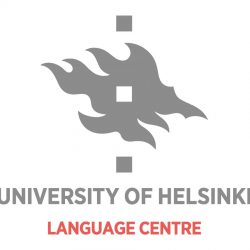Since the beginning of 2017, the University of Helsinki’s Language Centre has provided teaching in speech communication. Previously, the University faculties were responsible for the provision of speech communication studies which were part of their degree requirements.
Tuuli Nilsson and Katariina Hollanti, university instructors of speech communication who transferred to the Language Centre, have enjoyed their first year at the Language Centre. Tuuli came to the Language Centre from the Faculty of Arts and Katariina from the Faculty of Behavioural Sciences (now the Faculty of Educational Sciences). Two new teachers of speech communication were recruited in autumn 2017 to take up positions in 2018.
“The first year has gone well, beyond my expectations in many respects. It’s been easy to integrate into the Language Centre, and we have enjoyed the active and cooperative work community. We have been able to develop new teaching solutions, and the cooperation encourages and motivates us to develop our teaching even more. We are eagerly awaiting the coming academic year when our speech communication team will consist of four teachers,” Tuuli and Katariina sum up.
Communication skills for all
Speech communication explores human interaction. Students of speech communication develop the interaction skills necessary for studies and employment. At the core of studies in speech communication are communication and interaction skills in various contexts, the development of students’ reflective thinking skills and, increasingly, an understanding of digital interaction.
“As interaction skills are not just individual characteristics, we explore them in groups and communities as well as in the interactive relationship between people,” the teachers explain.
The students also practise presentation skills and other communication skills needed in the job market. Although speech communication is administratively placed in the Language Centre’s native language unit, it is independent of language and thus enables diverse cooperation between language groups.
TEACHING IN SPEECH COMMUNICATION CAN DEVELOP AT THE LANGUAGE CENTRE
The two teachers say that the Language Centre has provided a good home for teaching in speech communication. Tuuli and Katariina expect the future to be full of not only work, but also inspiring opportunities.
“The Language Centre’s status as a dynamic independent institute with good relations with all faculties and degree programmes makes it possible to engage in diverse cooperation throughout the University and provide teaching in speech communication equitably to all degree programmes. However, the resources added to the teaching in speech communication this year will not be sufficient to meet the needs of all faculties, so there’s still a lot to develop,” Tuuli and Katariina state.
The teachers are planning to develop not only the studies available to students, but also the content and forms of teaching. Diverse cooperation, digitalisation and the integration of teaching, in particular, will be highlighted in the coming academic year.
“We wish to develop the content of teaching in speech communication to meet the needs of the future world of work. Increasing cooperation with degree programmes and integrating the content of teaching with the programmes’ needs will promote the impact of teaching. An important focus for our team next autumn will be the construction of a digital self-access environment for interaction skills and the piloting of new digital learning methods,” the two teachers say.
Text: Janne Niinivaara

